Meet the Speakers
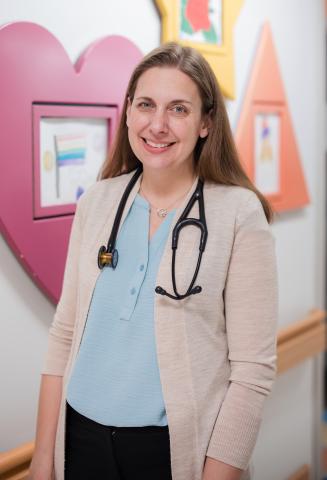
Rebecca Ahrens-Nicklas, MD, PhD
Presentation Title: Personalized therapeutic genome editing for urea cycle disorders
Dr. Rebecca Ahrens-Nicklas is an Assistant Professor of Pediatrics in the Division of Human Genetics and Metabolism at The Children’s Hospital of Philadelphia (CHOP) and the University of Pennsylvania. She also directs the Gene Therapy for Inherited Metabolic Diseases Frontier Program at CHOP. After completing MD/PhD training in Physiology and Biophysics, she pursued clinical training in Pediatrics, Clinical Genetics, and Metabolism. She cares for children with rare diseases, with a special interest in neurometabolic disorders. Her research laboratory focuses both on gene discovery and elucidating the pathologic mechanisms underlying rare diseases to guide therapy development. She also partners with advocacy groups to conduct natural history and biomarker studies to promote clinical trial readiness for these rare conditions.
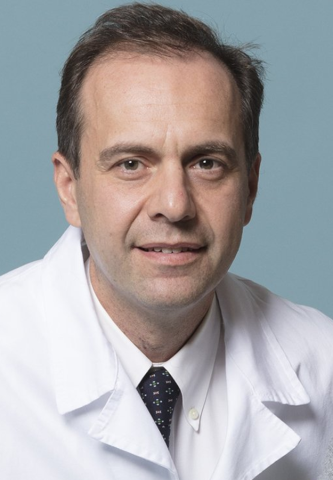
Nicola Brunetti-Pierri, MD
Presentation Title: Using animal models to understand UCD
Nicola Brunetti-Pierri, M.D.
Principal Investigator at the Telethon Institute of Genetics and Medicine (TIGEM), Pozzuoli, Italy
&
Professor of Pediatrics ‘Federico II’ University, Naples, Italy.
Nicola Brunetti-Pierri graduated in Medicine from Federico II University of Naples, Italy. After his residency in Pediatrics at the same institution, he moved to Baylor College of Medicine, Houston, USA for a post-doctoral research fellowship and clinical training in medical genetics and biochemical genetics. He was Assistant Professor in the Department of Molecular and Human Genetics at Baylor College of Medicine from 2006 to 2010 and then moved back to Italy. Currently, he is Professor of pediatrics at Federico II University, Naples and Principal Investigator at the Telethon Institute of Genetics and Medicine (TIGEM).
As a pediatrician and geneticist, he studies genetic diseases and inherited metabolic disorders, and his research focuses on developing novel therapies for these disorders. By actively working in the clinic and in the laboratory, he contributed to the identification and clinical characterization of more than 20 genetic disorders. His laboratory generated preclinical data supporting the efficacy of liver-directed gene therapy and he is the principal investigator of two phase I/II liver-directed gene therapy clinical trials. He is the coordinator of the Molecular Therapy program at TIGEM and founder of the Italian Society of Gene and Cell Therapy. His research has been funded by the National Institute of Health (NIH) and European Research Council (ERC). His research activity has been recognized by important awards of the American and European societies of gene and cell therapy (ASGCT and ESGCT).
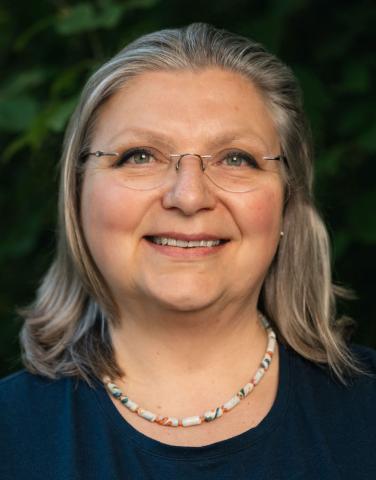
Ljubica Caldovic, PhD
Presentation Title: Cellular models for UCD research
Dr. Caldovic earned her bachelor’s degree in chemistry from the University of Belgrade in Serbia and her PhD in Molecular, Cell, Developmental Biology and Genetics from the University of Minnesota. Dr. Caldovic joined Children’s National in 2000 as a research postdoctoral fellow, became a faculty member in 2004, and was appointed Professor of Pediatrics and Biochemistry and Molecular Medicine at George Washington University in 2024. She is currently serving as the interim director of the Center for Genetic Medicine Research. Dr. Caldovic is an internationally recognized expert in molecular mechanisms of urea cycle disorders and pathobiology of ammonia toxicity to the brain. She discovered and characterized the mammalian N-acetylglutamate synthase gene, which led to the development of a molecular test for NAGS deficiency and enabled FDA approval of carglumic acid for treating the disease. More recently, Dr. Caldovic has been serving on ClinGen’s Urea Cycle Disorders Variant Curation Expert Panel, tasked with assigning clinical significance of sequence variants found in urea cycle genes.
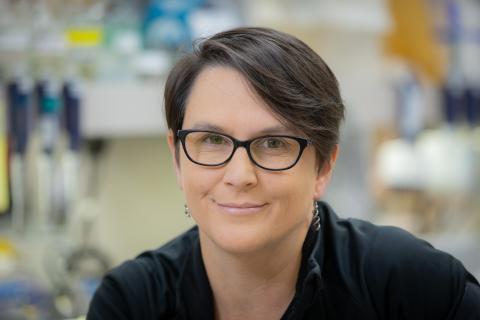
Aimee Dudley, PhD
Presentation Title: Large-scale functional assays for understanding variant impact in UCD
Aimée Dudley earned her B.S. in biochemistry from the University of Massachusetts at Amherst and her Ph.D. in genetics from Harvard Medical School. She was an Alexander Hollaender Distinguished Postdoctoral Fellow at Harvard Medical School. Dr. Dudley is currently a Senior Investigator and the Interim Chief Scientific Officer at the Pacific Northwest Research Institute. She also serves as Editor-in-Chief at the journal PLoS Genetics.
The Dudley lab uses genetics, genomics, and technology development in Saccharomyces cerevisiae to address a wide array of biological problems. The lab’s current research focuses on using high throughput functional assays to assess the impact of variation in the human genome.
Akinari Fukuda, MD
Presentation Title: Metabolic management versus whole liver or stem cell transplantation
Akinari Fukuda is Deputy Director of the Center for Organ Transplantation at the National Center for Child Health and Development (NCCHD) in Tokyo, Japan. A board-certified pediatric transplant surgeon, he has devoted his career to advancing liver transplantation in children, with a particular focus on complex metabolic liver diseases such as urea cycle disorders, glycogen storage diseases, and methylmalonic acidemia. Since joining NCCHD in 2006, Dr. Fukuda has performed numerous living donor liver transplants and has led several initiatives to improve surgical techniques and long-term outcomes in pediatric recipients.
He served as the principal investigator of the world’s first clinical trial of hepatocyte transplantation using human embryonic stem cell-derived hepatocytes (HAES) in a neonate with urea cycle disorder. This landmark trial demonstrated the feasibility of using regenerative cell therapy as a "bridge treatment" to stabilize metabolic status until definitive liver transplantation could be performed. His team’s success opened new avenues for clinical applications of stem cell-derived hepatocytes in neonatal liver disease.
Dr. Fukuda is an active member of multiple national transplant and surgical societies and regularly contributes to multicenter collaborative research. He has published extensively on pediatric liver transplantation, metabolic liver disorders, and cell-based therapies. He is also deeply committed to training the next generation of pediatric transplant surgeons and promoting global knowledge exchange in the field.

Andrea Gropman, MD
Presentation Titles: The Journey to the Current UCD Landscape and Brain imaging as a prognostic biomarker for UCD
Dr. Andrea Gropman is a pediatric neurogeneticist and neurometabolic specialist. She received her M.D. from the University of Massachusetts School of Medicine, completed a residency in Pediatrics at Johns Hopkins Hospital in Baltimore, MD and subsequent fellowships in neurology/child neurology at George Washington University and Children’s National Hospital, Washington, D.C., clinical and biochemical genetics at the National Institutes of Health, and a mini fellowship in neuroimaging and magnetic resonance spectroscopy at the Huntington Medical Research Institute in Pasadena, CA. She is board certified in neurology/child neurology, genetics, biochemical genetics and neurodevelopmental disabilities. She served as Professor of Pediatrics, Neurology, Genomics and Personalized Medicine at George Washington University for the past 25 years and served as the division chief for Neurogenetics and Neurodevelopmental disabilities from 2014-2024 and the interim director of genetic medicine research from July 2023-September 2024. Dr. Gropman also is the PI for the Urea Cycle Rare Disorders Consortium and serves leadership roles on the RDCRN and in genetic, metabolic and neurology societies. She is currently the Director of Neurometabolic Translational Research, in the center for experimental therapeutics at St. Jude Children’s Research Hospital. She has published 300 research articles and reviews and contributed 12 chapters to classic textbooks in genetics and neurology is one of the editors of the classic textbook, Swaiman’s Pediatric Neurology. Dr. Gropman is coauthor of the textbook, X and Y chromosome Variations. She has lectured extensively and been an invited speaker at dozens of conferences and symposia both nationally and internationally. Dr. Gropman's research has focused on several areas including inborn errors of metabolism, in which she is considered an international authority on neuroimaging and brain biomarkers in urea cycle disorders, mitochondrial epigenomics, and chromosome disorders including Smith Magenis syndrome and X and Y chromosome disorders. She is a gracious mentor for the next generation of physicians and researchers in rare disease. Dr. Gropman has dedicated her career to the care of children and adults with rare disease.
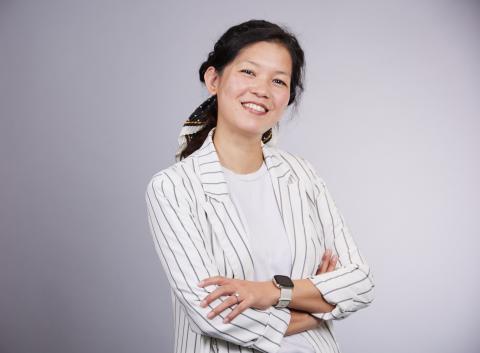
Sonam Gurung, PhD
Presentation Title: RNA-based therapies for UCD: An update
Institution: Great Ormond Street Institute of Child Health, University College London
I am a postdoctoral researcher in the laboratory of Dr Julien Baruteau at the Great Ormond Street Institute of Child Health, University College London. My current research investigates innovative non viral gene therapies for urea cycle disorders, with a specific focus on mRNA–lipid nanoparticle (LNP) approaches to treat argininosuccinic aciduria (ASA). I also explore disease pathophysiology mechanisms and have prior experience in exosome based therapeutic development. Alongside, my research focuses on expanding the therapeutic applications of LNPs to neurological disorders.
I received my PhD in 2018 from the University of Bristol’s Department of Biochemistry, under the supervision of Prof Jeremy Henley. My doctoral research examined the role of RNA editing in glutamate receptor function and synaptic plasticity, followed by a nine month fellowship at the Elizabeth Blackwell Institute in Bristol.
In addition to my research, I contribute to MSc-level teaching, co-leading two Msc modules, and actively engage in patient and public outreach activities.
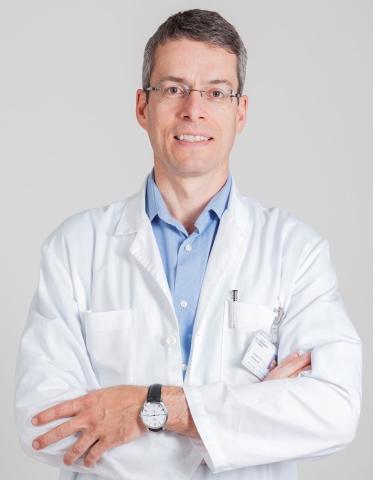
Johannes Häberle, MD
Presentation Title: Diagnostic and clinical trial applications of in vivo ureagenesis measurement
Johannes Häberle is an Adjunct Professor of Pediatrics at the University of Zurich working as a Consultant and as Head of the Metabolic Laboratory at the Division of Metabolism in the University Children’s Hospital Zurich. His research focuses on urea cycle disorders (UCDs), specifically on innovative genetic and functional flux analysis and the development of novel therapies. He is chairman of the working group that produced the 2019 “Urea cycle disorders diagnosis and treatment guidelines”, a project that is currently resumed for another revision. Recently, he became Director of the “UCD Translational Center Universität Zurich - Citrin Foundation”. His work is supported by the Swiss National Science Foundation, the University of Zurich’s URPP ITINERARE program and Citrin Foundation.
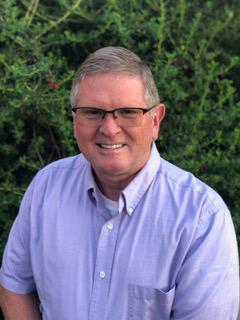
Cary Harding, MD
Presentation Title: Gene therapies for UCD
Cary O. Harding, MD, FACMG is Professor of Molecular and Medical Genetics and Pediatrics at Oregon Health & Science University (OHSU). He received his medical degree from the University of Washington followed by pediatric and medical genetics training at the University of Wisconsin-Madison. He is board certified in Clinical Genetics and Clinical Biochemical Genetics. Dr. Harding is a founding fellow of the American College of Medical Genetics and Genomics (ACMGG) and a member of the American Society for Cell and Gene Therapy (ASGCT) and Society for the Study of Inborn Errors of Metabolism (SSIEM). He is the treasurer of the Society for Inherited Metabolic Disorders (SIMD). He is an attending physician in the metabolic clinic at Doernbecher Children’s Hospital and the Medical Director of the Biochemical Genetics Lab at OHSU. He is also a clinical consultant to the Northwest Regional Newborn Screening Program. He serves as co-chair of the Scientific Advisory Board for the National PKU Alliance (NPKUA) and as the Project Director for the PHEFREE Rare Disorders Consortium. Dr. Harding’s basic and clinical research programs are focused upon the development of novel therapies, including gene and cell therapies, for inborn errors of metabolism.
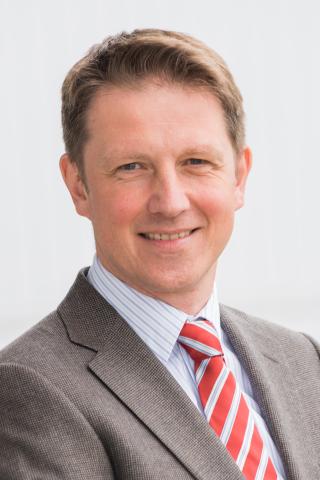
Stefan Kölker, MD
Presentation Title: Newborn Screening for all UCD? Results of a pilot study
Stefan Kölker is Full Professor of Translational Metabolic Medicine and Pediatric Neurology at the Medical Faculty of Heidelberg University and Head of Division of Child Neurology and Metabolic Medicine at the Centre for Pediatrics and Adolescent Medicine, Heidelberg University Hospital, Germany. He has a long-standing interest in clinical and translational research focusing on intoxication-type inherited metabolic diseases and newborn screening. He is coordinator of the EU-funded projects E-IMD and U-IMD, vice-coordinator of MetabERN, and (Principal) Investigator of several clinical and translational studies (e.g. NGS 2025, NEW_LIVES, Recon4IMD, CHARLIE, SIMPATHIC, INTEGRATE-ATMP), aiming to elucidate phenotypic diversity, identify predictive biomarkers, optimize newborn screening, and to develop and evaluate innovative therapies for IMDs.
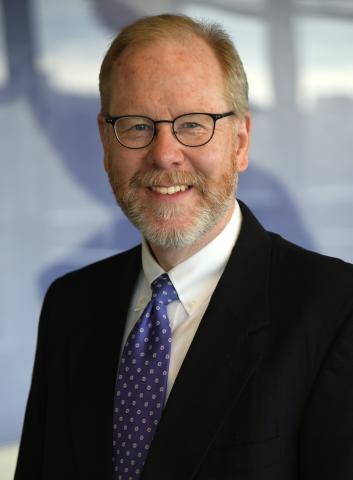
Shawn McCandless, MD
Presentation Title: Promise and challenges of newborn screening for UCDs
Shawn E. McCandless, MD, is Professor of Pediatrics, and the Section Head for Genetics and Metabolism at the University of Colorado Anschutz Medical Campus and Chair of the Department of Genetics and Metabolism at Children’s Hospital Colorado. His research and clinical care focus on inborn errors of metabolism (IEM) and Prader-Willi syndrome (PWS), including publicly and industry funded clinical trials for children and adults with IEMs and PWS. He is currently involved in a variety of clinical trials, including gene therapy trials for OTCD and GSD1a. He is the Clinical Team Liaison for the Urea Cycle Disorders Consortium (UCDC) of the NIH Rare Diseases Clinical Research Network and serves as the chair of the Industry Relations Committee, having been a member of the UCDC since 2008. He is a Past President of the Society for Inherited Metabolic Disorders (SIMD). He has served as a member of the Advisory Committee on Heritable Disorders of Newborns and Children (HRSA) and he is the Chair of the Colorado Rare Diseases Advisory Council. Previous employment includes working as a general pediatrician at the Northern Navajo Medical Center in Shiprock, NM, and faculty positions in Genetics and Metabolism at the University of North Carolina – Chapel Hill, and Case Western Reserve University, prior to moving to Colorado in 2018.
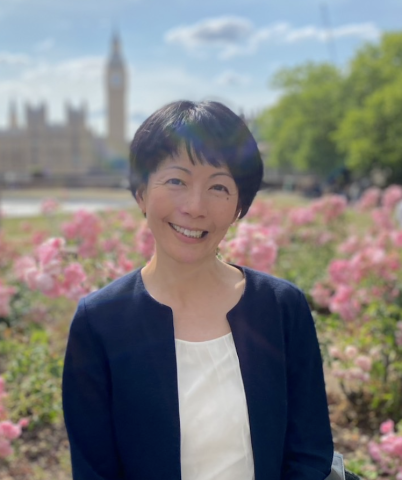
Yoko Nakajima, MD, PhD
Presentation Title: An East-West comparison of UCD dietary management
Dr. Yoko Nakajima is an Associate Professor of Pediatrics at Fujita Health University in Japan. She received her M.D. from Shinshu University and her Ph.D. in Medical Sciences from Nagoya City University. After completing her pediatric residency and research fellowship in Japan, she underwent postdoctoral research training in inherited metabolic disorders at the University of Amsterdam.
Dr. Nakajima specializes in the clinical care of patients with urea cycle disorders (UCDs) and has managed one of the largest UCD patient cohorts in Japan. She is the principal investigator in multiple clinical trials for UCD therapies. As a board-certified clinical geneticist, she also provides genetic counseling to affected families, including preimplantation and prenatal diagnostic support.
She is a consultant for the neonatal mass screening program in Aichi Prefecture and serves on its quality control committee. Her professional interests include dietary therapy, family-centered nutritional education, and close collaboration with clinical dietitians. She is also dedicated to mentoring the next generation of pediatricians and frequently lectures at national seminars on inborn errors of metabolism. Dr. Nakajima is a board member of the Japanese Society for Inherited Metabolic Diseases and serves on the Local Organizing Committee for ICIEM 2025.
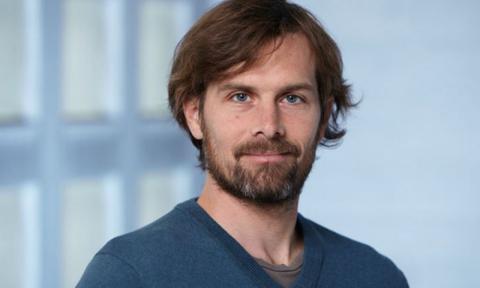
Gerald Schwank, PhD
Presentation Title: Current progress and challenges in gene editing for UCD
Gerald Schwank is a Professor at the Medical Faculty of the University of Zurich, specializing in translational genome editing. His research focuses on developing and applying gene editing technologies to correct genetic diseases, with a particular emphasis on inherited metabolic disorders of the liver. After earning a PhD in Molecular Biology from the University of Zurich and completing postdoctoral training at the Hubrecht Institute—where he pioneered CRISPR editing in patient-derived intestinal organoids—he established his independent research group at ETH Zurich in 2015. There, he developed high-throughput CRISPR screening tools to investigate disease mechanisms and initiated efforts toward therapeutic genome editing.
Since his appointment at the University of Zurich in 2019, the Schwank lab has focused on correcting liver and neurological disorders through in vivo delivery of precision genome editors. His team utilizes lipid nanoparticles and AAV vectors to deliver base and prime editors into target tissues, enabling durable correction of disease-causing mutations in preclinical models. To enhance the efficacy and specificity of these tools, the lab also integrates directed protein evolution and deep learning–based prediction platforms.
Gerald Schwank’s work bridges mechanistic insight and clinical translation, with the long-term goal of establishing genome editing as a curative therapy for patients with monogenic liver diseases.
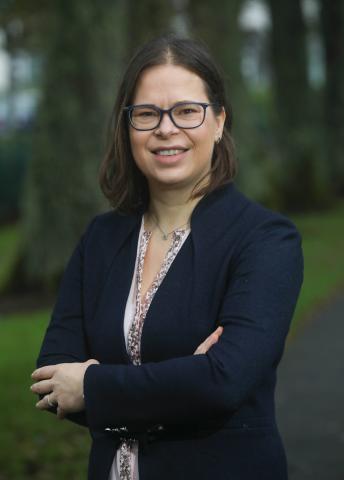
Ines Thiele, PhD
Presentation Title: Opportunities in machine learning-supported newborn screening
Professor Ines Thiele is the principal investigator of the Molecular Systems Physiology group and the director of the Digital Metabolic Twin Centre at the University of Galway, Ireland.
Her research aims to improve the understanding of how diet influences human health. Therefore, she uses a computational modelling approach, termed constraint-based modelling, which has gained increasing importance in systems biology. Her group builds comprehensive models of humans and human-associated microbes; then employs them together with experimental data to investigate how nutrition and genetic predisposition can affect one's health. In particular, she is interested in applying her computational modelling approach for better understanding of inherited and neurodegenerative diseases. Ines Thiele has been pioneering models and methods allowing large-scale computational modelling of the human gut microbiome and its metabolic effect on human metabolism.
Ines Thiele earned her PhD in bioinformatics from the University of California, San Diego, in 2009. Ines Thiele was an Assistant and Associate Professor at the University of Iceland (2009 - 2013), and Associate Professor at the University of Luxembourg (2013-2019).
In 2013, Ines Thiele received the ATTRACT fellowship from the Fonds National de la Recherche (Luxembourg). In 2015, she was elected as EMBO Young Investigator. In 2017, she was awarded the prestigious ERC starting grant. In 2020, she received the NUI Galway President’s award in research excellence. In 2020 and 2024, Ines Thiele was named a highly cited researcher by Clarivate. In 2023, she was awarded the prestigious ERC consolidator grant. She is an author of over 100 international scientific papers and reviewer for multiple journals and funding agencies.
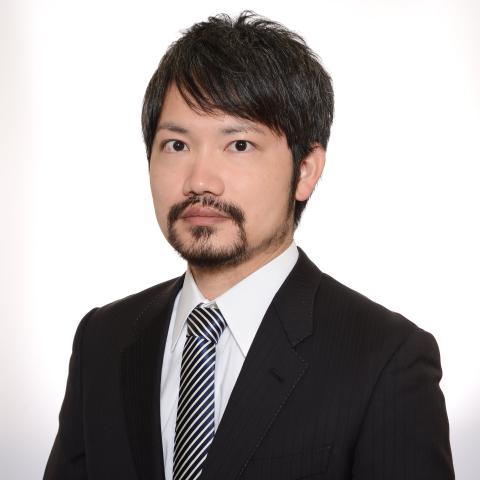
Yoichi Wada, MD
Presentation Title: Proteomic approach to screening for proximal UCDs
Tohoku University Hospital, Sendai, Miyagi, Japan
Dr. Yoichi Wada is a pediatrician and physician-scientist specializing in inborn errors of metabolism (IEM). He received his M.D. from Tohoku University in 2010 and completed his pediatric residency at Kurashiki Central Hospital. After becoming a board-certified pediatrician and medical geneticist, he earned his Ph.D. in pediatrics at Tohoku University under the mentorship of Prof. Atsuo Kikuchi and Prof. Shigeo Kure.
Dr. Wada has conducted extensive research on undiagnosed IEM, notably contributing to the identification of Galactosemia type IV in 2018. In 2023, he was awarded the JSPS KAITOKU-NIH Fellowship and joined the Metabolic Medicine Branch at the National Institutes of Health, where he studied the pathophysiology and gene therapy of methylmalonic acidemia and propionic acidemia under the supervision of Dr. Charles P. Venditti.
In 2025, Dr. Wada was appointed Principal Investigator at the Department of Medical Science and Innovation, SiRIUS Institute of Medical Research, Tohoku University. His current research focuses on developing disruptive innovations to overcome the limitations of existing screening and treatment strategies for IEM. Bridging clinical pediatrics and molecular research, he is committed to deepening scientific understanding while advancing early diagnosis and novel therapies to improve outcomes for patients with IEM.

Tresa Warner, MBA
Presentation Titles: The journey to the current UCD landscape and Innovative therapies: Patients‘ expectations and outcomes
Tresa Warner is the Executive Director of the National Urea Cycle Disorders Foundation (NUCDF). She is committed to advancing research that enhances our understanding of urea cycle disorders (UCDs) and developing innovative interventions and treatments to significantly improve patient outcomes.
Having raised a child with a severe UCD, Tresa has valuable insight into the daily and long-term challenges faced by families affected by these disorders. Since 1998, she has supported NUCDF's mission to advance research and support patients, including serving as Board Chair for 20 years. Her direct engagement with UCD patients and their families has fostered a strong sense of trust, positioning her as their advocate and peer. This experience has allowed Tresa to gain a comprehensive understanding of the diverse UCD phenotypes, management challenges, and quality-of-life issues that patients encounter.
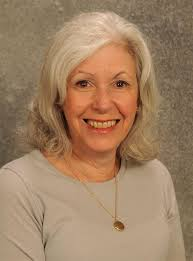
Greta Wilkening, Psy.D
Presentation Title: Unraveling the neuropsychological and quality of life complexity of UCD
Dr. Greta Wilkening is a neuropsychologist and Professor of Pediatrics at the University of Colorado School of Medicine. She is board certified in both Clinical and Pediatric Neuropsychology. She has been the director of the NeuroDevelopmental Research Core at the Children’s Hospital Colorado. Dr. Wilkening has been involved with and directed multiple longitudinal and multisite studies focused upon both unperturbed development and the neurodevelopment of children with chronic medical disorders including the UCDC. She is currently embedded in the Lifetime Epidemiology of Adiposity and Diabetes (LEAD) Center, a new and exciting adventure.
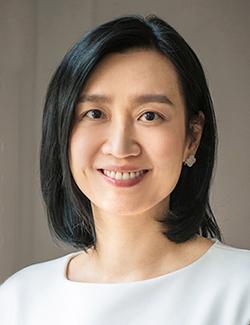
Barbara Yu
Presentation Titles: Innovative therapies: patients‘ expectations and outcomes
Barbara Yu is the Co-founder and President of the Citrin Foundation, a research-driven, patient-centered non-profit dedicated to curing and supporting individuals affected by citrin deficiency—a liver metabolic disease and a urea cycle disorder (UCD). She co-founded and co-funded the Foundation in 2016 with her husband, Yen How Tai, driven by their own family’s experience with the condition and the belief that progress in rare diseases requires long-term commitment, collaboration, and scientific excellence.
Today, Citrin Foundation creates a global ecosystem for citrin deficiency efforts, funding and advancing a wide range of initiatives across basic science, translational research, therapeutic development, clinical studies, patient support, and community engagement. It partners with academic institutions, clinicians, researchers, and biotech companies to deepen understanding of disease mechanisms, identify patients and build international cohorts, conduct natural history studies, discover biomarkers, and accelerate the development of effective treatments. Strategic initiatives also include the establishment of UCD Translational Research Center Universität Zürich – Citrin Foundation.
Outside her philanthropic work, Barbara is the Co-founder and Co-CEO of YH2 Capital, an investment firm with a long-term focus. She previously served as Partner and Head of Asia at Eton Park Capital Management and as Head of the Principal Strategies Group at Goldman Sachs Asia, overseeing proprietary investments across the region.
Barbara holds a BA in Law with double first-class honors from Magdalene College, University of Cambridge.
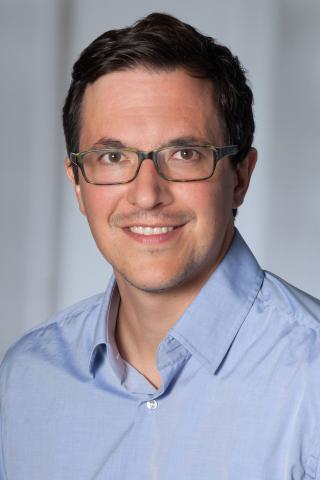
Matthias Zielonka, MD
Presentation Title: Early prediction of disease severity: a tool for precision medicine in UCD
Dr. Matthias Zielonka is pediatrician, metabolic consultant and attending physician at the University Children’s Hospital Heidelberg, Germany. He received his MD from Heidelberg University, completed a residency in pediatrics with subsequent (research) fellowships in molecular biology, biochemistry, metabolic medicine and pediatric neurology at the Center for Child and Adolescent Medicine and the European Molecular Biology Laboratory (EMBL) in Heidelberg. Dr. Zielonka was supported by a Career Development Fellowship in the framework of Excellence Initiative II of the German Research Foundation as well as a Career Enhancement Core Fellowship provided by the Urea Cycle Disorders Consortium (UCDC), for which he currently serves as study site Co-PI in Heidelberg. His research interests are focused on inherited metabolic diseases with a particular interest in natural history modelling, comparative outcome analyses, biomarker identification and development of novel therapeutic strategies in urea cycle disorders combining basic scientific, clinical and translational approaches in close collaboration with the European registry and network for Intoxication type Metabolic Diseases (E-IMD) and the UCDC. Dr. Zielonka has published multiple research articles and reviews in the fields of inherited metabolic diseases and neuroscience and has authored several online and paper-bound book chapters on urea cycle disorders. In 2025, Dr. Zielonka was appointed associate professor at Heidelberg University.

